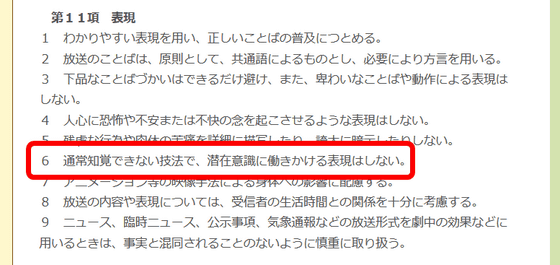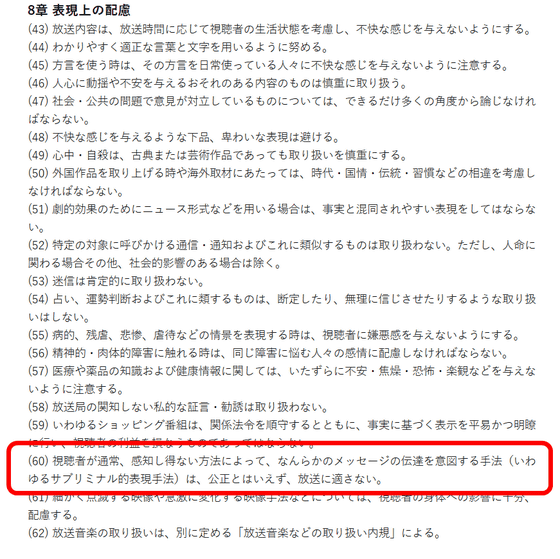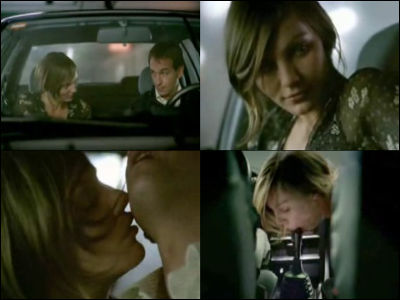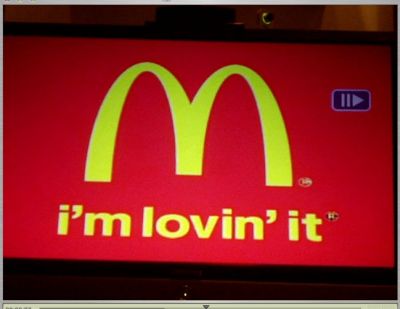Is 'subliminal advertising' that imprints a specific product or message under the subconscious really effective?

The
Does subliminal messaging really work? | Live Science
https://www.livescience.com/does-subliminal-messaging-work.html
Research on the subliminal effect has been carried out since the 19th century, and it was claimed from that time that 'the instantaneous image affects human psychology'. It is said that an experiment conducted in a movie theater in New Jersey in 1957 was the first to adopt “subliminal advertising” using this subliminal effect.
In an experiment reported by market researcher James Vickary, the movie ' Picnic, ' which was released in 1955, had an instantaneous 'Drink Coca-Cola' or 'Hungry?' Eat Popcorn (let's get hungry? Let's eat popcorn) 'was displayed for 1/3000 second. Mr. Vickary reported that 'Cola sales increased 18.1% and popcorn sales increased 57.8% after the show ended,' asserting the effectiveness of subliminal advertising.

by
However, similar results could not be obtained even if the company to which Mr. Vickery belongs re-tested, and verification by a TV station that `` displays the message `` Telephone Now '' during the program for a moment '' It was done, but despite having displayed the message 352 times, the phone did not receive any calls from the viewer. Mr. Vickary confessed at the end of his death that the result of the famous experiment was 'neutral.'
Theoretically, even if a viewer sees a message momentarily sandwiched in the video, a lot of other information is delivered to the brain, so the brain ignores the message if it is not conscious And that. Subliminal ads are also used for conspiracy theories such as `` the word 'SEX' is hidden in cola and alcohol ads, '' and `` Political ads in the presidential election hide messages that attack rival candidates. '' It is often said that 'subliminal advertising is a type of pseudo-science'.

by
On the other hand, research on the subliminal effect itself is being continued, and there is an assertion that 'subliminal effects are recognized in smaller experiments.'
In experiments conducted by Princeton University psychologists Grant Cooper and Joel Cooper in 2002, the popular anime `` The Simpsons '' showed images of Coca-Cola cans and `` thirsty (thirsty) '' When the message was inserted into the movie at 12 locations in the play and shown to the subject, it was reported that the tendency to complain of dryness after viewing increased. A research team from the Utrecht University School of Psychology claims in a study conducted in 2006 that the use of subliminal effects allowed them to choose any drink.
However, in any of the experimental results, there is a tendency that it is easy to drink after watching the video if you are originally thirsty, and it is scientifically determined whether you want to drink a specific drink due to the subliminal effect itself No rationale is given. 'The subliminal effect will only be effective if the displayed message and the viewer's desire are linked,' said Ian Zimmerman, assistant professor of psychology at the University of Minnesota Duluth.

In the United States, advertising and production using the subliminal effect were banned in the 1970s. In 1995, a case was discovered in Japan in which photos that had nothing to do with television programs and animations were discovered, which became a problem. As a result, the NHK and the Japan Broadcasting Corporation have banned advertising and directing with the intention of subliminal effects.
NHK INFORMATION 'Japan Broadcasting Corporation Program Standard'
https://www.nhk.or.jp/pr/keiei/kijun/index.htm

For better broadcasting | Japan Broadcasting Corporation
https://www.j-ba.or.jp/category/broadcasting/jba101032

Related Posts:
in Science, Posted by log1i_yk







